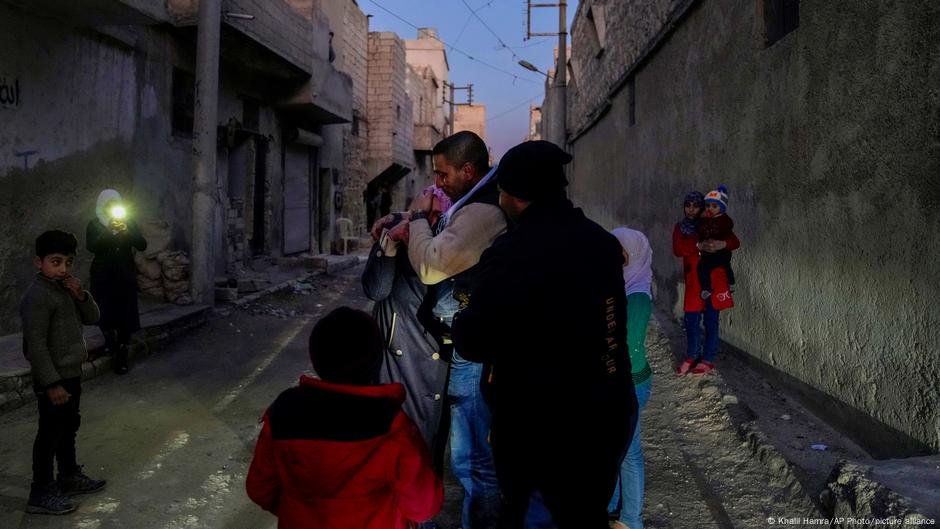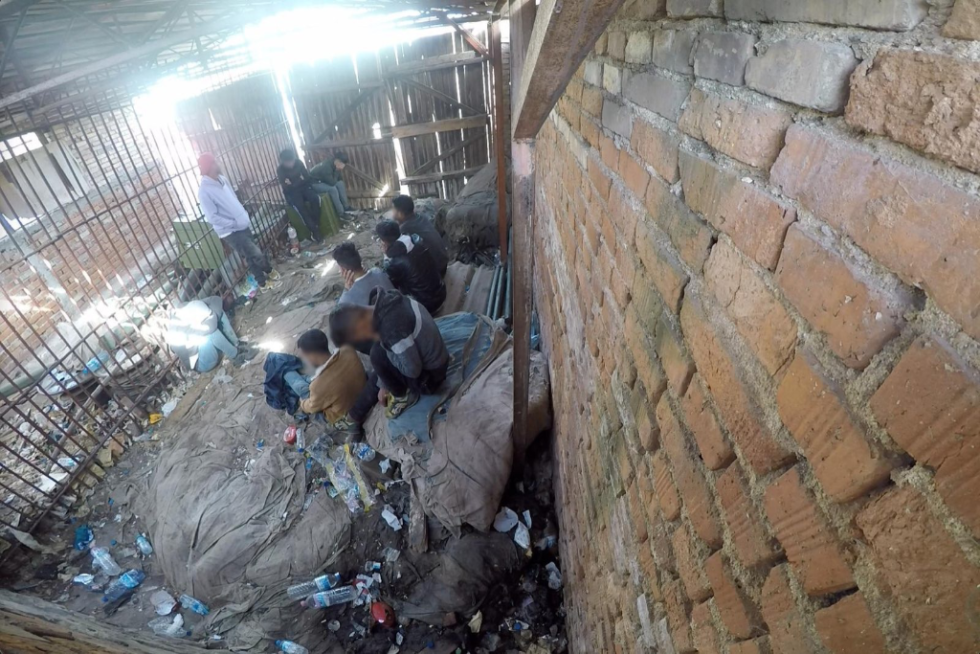A group of Syrian asylum seekers are contesting their pending removal to Bulgaria in British courts, citing allegations of inhumane treatment and poor conditions in the country.
A group of Syrian nationals is hoping to contest their removal to Bulgaria in British courts, citing allegations of inhumane treatment and poor conditions faced by migrants and asylum seekers in the country.
In an email to InfoMigrants, George Sheldon Grun, a public-law caseworker from Duncan Lewis Solicitors in the UK, who is representing the group, confirmed that the Home Office decided to send the Syrian nationals to Bulgaria because it is designated as a "safe third country."
"We are challenging this decision. They currently remain in the UK and the aim of the challenge is to prevent their removal. This would then enable them to claim asylum in the UK," said Grun.
In a series of emails to InfoMigrants, Grun said that he "wouldn't be able to discuss the clients' witness evidence until (and if) such a time the case reaches a public hearing."

The British government has ad hoc arrangements with specific countries, such as Bulgaria, to remove and return asylum seekers with a recorded history of entry into those countries.
Although since Brexit, Britain is no longer able to return all asylum seekers to the first country of EU entry, it hopes to use its agreement with Bulgaria to send the group of Syrians back there, since they were registered in Bulgaria prior to making their way to the UK.
However, legal experts and rights advocates say that repatriation to Bulgaria could be in breach of European regulations such as article 3 of the European convention on human rights, which safeguards against conditions that could be tantamount to torture or inhumane and degrading treatment.
According to UK government data, there have been more than 24,000 returns – both enforced and voluntary – from Britain since Labour’s election victory last year.
Reports of inhumane conditions and abuse
Numerous press and NGO reports have documented allegations of violence and abuse exerted by the Bulgarian authorities against migrants and asylum seekers in the country.
The British newspaper The Guardian reported on incidents of Syrian asylum seekers alleging that they were pressured, at times with the use of violence, to sign voluntary return documents to go back to their country of origin. The Guardian reported that Bulgaria’s state agency for refugees denied this claim.
Earlier this year, The Guardian also reported that the Bulgarian authorities reportedly obstructed rescue efforts to help three Egyptian teenage boys. The trio died in sub-zero temperatures near the Bulgaria-Turkey border in late December. The Bulgarian interior ministry said its border forces had reacted in a timely manner to reports of young people in distress, but that the bodies were found in different locations from those initially provided.

This week, humanitarian organization No Name Kitchen (NNK) that operates in the area, released a report detailing the testimonies of 21 people, including 17 Syrians, who were reportedly returned to Bulgaria from other European countries. The report found more than two-thirds of them had subsequently been put under pressure to sign "voluntary return" documents, stated the NGO.
One Syrian woman, who was deported from Germany to Bulgaria, alleged that Bulgarian officials in Bulgaria pressured her to sign a "voluntary" return agreement to send her back to Syria. She also claimed that authorities threatened her with 18 months in detention if she refused.
Another respondent deported from the UK alleged that he had suffered a broken nose as a result of multiple beatings at the hands of Bulgarian police.
Read AlsoThree teachers 'arrested in Bulgaria for rescuing migrants'
Extremely concerning
Grun said that the No Name Kitchen Report is "extremely concerning."
"The No Name Kitchen report suggests the vast majority of asylum seekers who have passed through Bulgaria have experienced inhuman and degrading treatment in detention or reception centers. We are very aware of the effect of being removed to somewhere where abuses have previously been suffered," said Grun.
Grun said that if Bulgaria were to be found responsible for this kind of treatment, then it could no longer be considered a "safe third state" and the UK's application to return the Syrians there might then be considered legally invalid.
The European Council on Refugees and Exiles (ECRE) described asylum conditions in Bulgaria as gradually deteriorating over a period of 10 years due to a lack of funding. In a 2024 country profile, ECRE reported migrants alleging they suffered from health issues resulting from vermin infestations and inadequate access to food and sanitation facilities in the country. Allegations relating to the presence of smugglers, drug dealers, and sex workers also reportedly compromised safety in reception centers.
ECRE also reported that only 2 percent of asylum seekers apprehended at the border were granted direct access to the asylum process and accommodation, while the vast majority were first detained in deportation centers. Although applicants tended to receive responses in under six months, according to ECRE, the organization said that applicants from Afghanistan and Turkey had reported facing discriminatory treatment in the country.
On May 13, InfoMigrants contacted the Bulgarian Ministry of Interior for comment regarding allegations of mistreatment of migrants in the country, as well as the pending returns of the group of Syrians from the UK. At the time of publication, we had not yet received a reply or comment.
